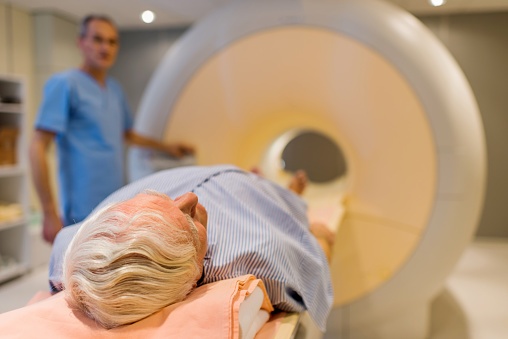
For many men, cancer screening tests, including the prostate-specific antigen (PSA) test, may be a good idea. PSA is a protein produced by both cancerous and noncancerous prostate tissue. Malignant cells usually produce more PSA than benign cells, which the test will detect.
Upon test completion, your doctor will take a number of factors into account when evaluating your PSA scores. They include:
- Your age.
- The rate at which your prostate levels are changing.
- If you’re on any medications that may affect PSA levels.
Age-Specific Screening Guidelines
Per Memorial Sloan Kettering Cancer Center, here are some age-specific prostate cancer screening guidelines, for men expected to live at least 10 years.
Men ages 45 to 49:
- If the PSA level is less than 1 ng / mL, men should follow-up with their doctor for another PSA test between the ages of 51 and 55.
- If the PSA level is between 1 and 3 ng/mL, men should see their doctor for another PSA test every two to four years.
- If the PSA level is 3 ng/mL or higher, men should speak to their doctor about scheduling a prostate biopsy.
Men ages 50 to 59:
- If the PSA level is less than 1 ng/mL, men should see their doctor for another PSA test at age 60.
- If the PSA level is between 1 and 3 ng/mL, men should see their doctor for another PSA test every two to four years.
- If the PSA level is 3 ng/mL or higher, men should talk with their doctor about having a prostate biopsy.
Men ages 60 to 70:
- If the PSA level is less than 1 ng/mL, no further screening is recommended.
- If the PSA level is between 1 and 3 ng/mL, men should see their doctor for another PSA test every two to four years.
- If the PSA level is 3 ng/mL or higher, men should talk with their doctor about having a prostate biopsy.
Men ages 71 to 75:
Men in this age group should talk with their doctor about prostate cancer screening. The decision will come down to past PSA levels and the health of the individual.
Men ages 76 and older:
Prostate cancer screening is not recommended for men above 76 and older. In this age group, an elevated PSA level is not indicative of needing a prostate biopsy. In this case, a doctor will often repeat the PSA test after a few months to determine if the PSA level is still high.
These guidelines are based on three principles:
- Many cases of prostate cancer can be followed by active surveillance. An initial diagnosis guides treatment planning, and is not indicative of immediate treatment.
- Screening compliance will increase if men know whether they are at low, intermediate, or high risk.
- It is important to focus screening on men at the highest risk for advanced prostate cancer.
Prostate Cancer Risk Factors
Independent of age, here are some other potential risk factors for prostate cancer, per Mayo Clinic.
- Race: Black men have higher odds of developing prostate cancer, and dying from prostate cancer. The reason for this is still not well understood.
- Family history: If a close family member (i.e., father, uncle, brother) was diagnosed with diagnosed with prostate cancer before the age of 65, your odds of also being diagnosed are higher.
- Your genes: Gene mutations play a major role in formation of prostate cancerous cells. Genes associated with prostate cancer risk include BRCA1 and BRCA2. While these genes are most closely linked with breast cancer, but they still augment the risk of other types of cancers, such as prostate cancer. Your doctor might recommend considering genetic testing if you have a family history or a close relative with one of these mutations.
- Diet. Eating right is important in the prevention of cancer. Diets that are high on animal fats, and low on fruits and vegetables put you at higher risk for prostate cancer.
Per the CDC, here’s information to help you prepare for a conversation with your doctor.
- Men who are 55 to 69 years old should make individual, informed decisions about being screened for prostate cancer with a PSA test.
- Prior to screening, you should go over with your doctor the pros and cons of prostate cancer screen.
- Men who over 70 should not be routinely screened for prostate cancer.
Overall, there are a litany of risk factors for prostate cancer and age-related screening guidelines that you should discuss with your doctor.







 © 2025 Mashup Media, LLC, a Formedics Property. All Rights Reserved.
© 2025 Mashup Media, LLC, a Formedics Property. All Rights Reserved.